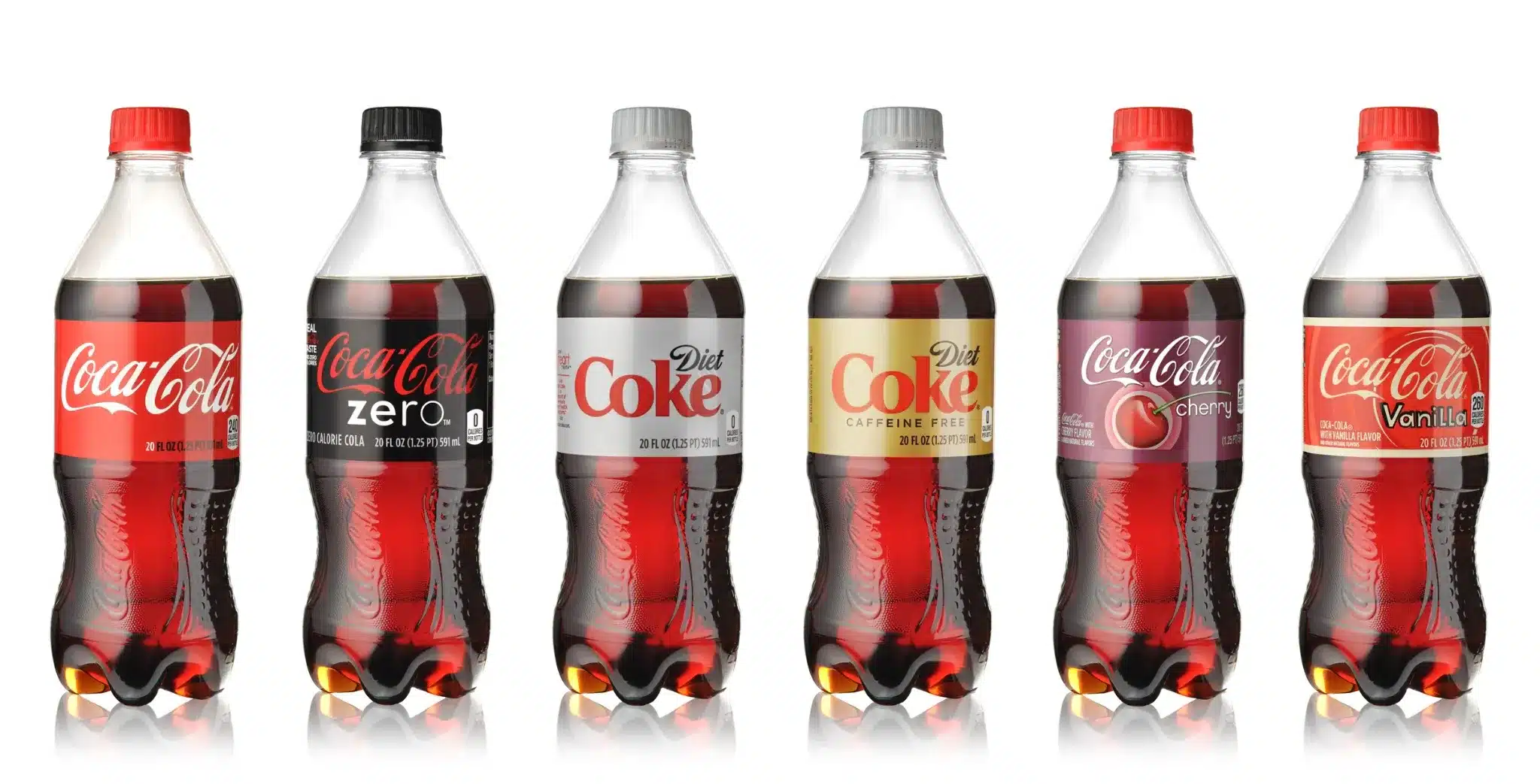Coca-Cola could increase the amount of plastic bottles it uses if President Trump’s controversial tariffs lead to a rise in the price of aluminium.
The potential change was confirmed by Coca-Cola’s Chief Executive Officer, James Quincey, in response to President Donald Trump’s decision to impose a 25% import tax on all steel and aluminium entering the country.
The move could drive up the prices of many products, including food and beverages, that rely on aluminium packaging.

Tariffs Impacting Coca-Cola’s Strategy
In December, Coca-Cola adjusted its sustainability target, scaling back its goal of using 50% recycled materials in packaging by 2030.
Instead, it now aims to use 35% to 40% recycled materials by 2035.
This shift reflects the growing pressures the company faces from both environmental concerns and economic factors, such as rising packaging costs due to the tariffs.
Quincey said Coca-Cola could still meet consumer demands and remain competitive even if aluminium cans become more expensive:
- Switch to PET Plastic Bottles: Coca-Cola can increase its use of PET plastic bottles if aluminium becomes too costly.
- Packaging Flexibility: The company is ready to adjust to market conditions, ensuring it has multiple packaging options.
However, this flexibility comes with challenges.
Environmentalists have repeatedly labeled Coca-Cola as the “top global plastic polluter“ for six years in a row, with concerns mounting over the company’s growing reliance on plastic.
The Rising Cost of Aluminium Cans
The tariffs on aluminium imports could impact not only Coca-Cola but also other beverage producers who rely on cans for their products.
The US imports nearly half of the aluminium it uses, so a 25% import tax will likely raise prices on cans, pushing manufacturers to consider alternatives like plastic.
- Higher Prices Expected: Aluminium cans, typically more expensive than plastic bottles, could become even more costly for Coca-Cola and its competitors.
- Environmental Impact: Despite the higher cost, aluminium cans are still seen as a better option for long-term recycling compared to plastic bottles, which often contribute to pollution.
Coca-Cola’s Sustainability Dilemma
Coca-Cola’s pivot towards aluminium was part of a broader marketing and sustainability strategy. The company had been trying to present itself as more environmentally conscious by moving away from plastic packaging.
However, with rising costs due to the tariffs, the company’s efforts may be undermined.
Despite these challenges, Quincey downplayed the overall impact of the tariffs on Coca-Cola’s business. He pointed out that packaging accounts for only a small portion of the company’s overall costs, suggesting the tariffs may not significantly affect their profitability.
Yet, as the cost of aluminium rises, Coca-Cola could face tough decisions regarding its commitment to sustainability and consumer preferences.
The Larger Implications of Trump’s Executive Order
Adding to Coca-Cola’s challenges, President Trump recently signed an executive order that reversed a policy established by former President Joe Biden.
This order halts efforts to phase out plastic straws in favor of paper alternatives, further complicating the environmental narrative for companies like Coca-Cola.
- Impact on Plastic Pollution: Critics of the executive order argue that it will contribute to increasing plastic pollution, a concern for businesses like Coca-Cola that are under growing pressure to reduce their environmental footprint.
Hiring? Post jobs for free with WhatJobs
What’s Next for Coca-Cola?
The future of Coca-Cola’s packaging choices is uncertain, and it will depend largely on how the company adapts to the evolving economic and regulatory landscape.
The US tariffs on aluminium are just one factor among many that could shape Coca-Cola’s strategies in the coming years.
Need Career Advice? Get employment skills advice at all levels of your career
Will Coca-Cola Shift Towards More Plastic?
- As aluminium becomes more expensive, could Coca-Cola shift even more towards plastic packaging?
- How will environmental pressures and the company’s long-term goals align with the financial realities of tariffs and packaging costs?
Coca-Cola will have to balance its sustainability ambitions with the need to remain competitive in a changing market.
The company may face increasing pressure to innovate in the packaging space, seeking alternatives that are both cost-effective and environmentally friendly.




